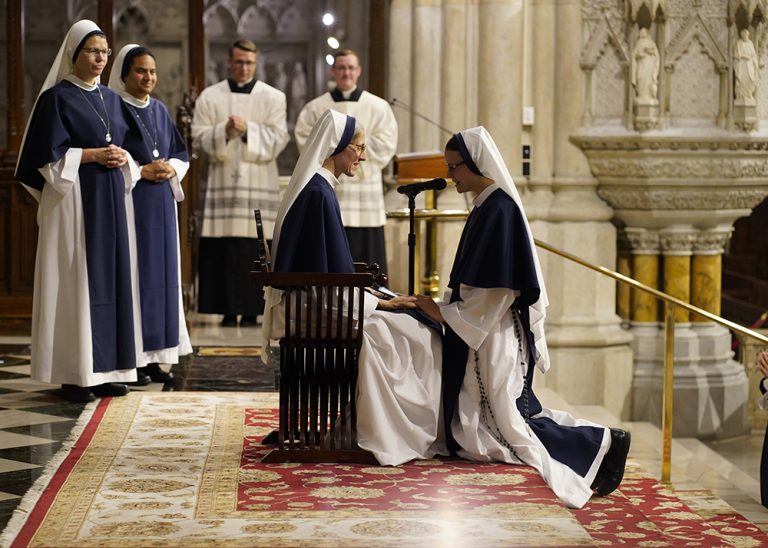
Kontemplasjon
The word ‘contemplation’ is currently on many lips. It is a good thing. Many aspire to attain deep prayer. They long to ‘see God’, which is an eminently Scriptural aspiration. How often, though, the spiritual quest is treated, even in manuals of prayer, as if it were distinct from the general demands of Christian discipleship. We need the realism of St Bernard in the text which the Church this morning lets us read at Vigils: ‘The first stage of contemplation is to consider constantly what God wants, what is pleasing to him, and what is acceptable in his eyes. We all offend in many things; our strength cannot match the rightness of God’s will and cannot be joined to it or made to fit with it. So let us humble ourselves under the powerful hand of the most high God and make an effort to show ourselves unworthy before his merciful gaze, saying Heal me, Lord, and I shall be healed; save me and I shall be saved […]. Once the eye of the soul has been purified by such considerations, we no longer abide within our spirit in a sense of sorrow, but abide rather in the Spirit of God with great delight. No longer do we consider what is the will of God for us, but rather what it is in itself. For our life is in his will. Thus we are convinced that what is according to his will is in every way better for us, and more fitting. And so, if we are concerned to preserve the life of our soul, we must be equally concerned to deviate as little as possible from his will.’ From Sermo V de diversis, 4-5.
